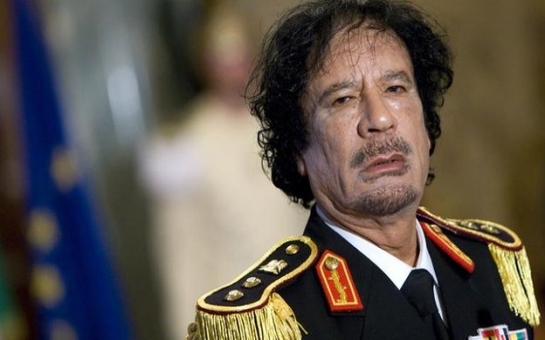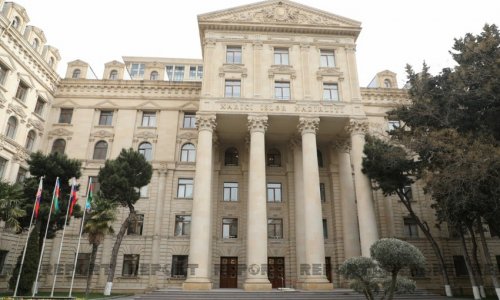(BBC) - When is the cure worse than the disease?
It's an unanswerable question, but when the disease was Gaddafi's brutal tyranny in Libya, when the cure was a revolution actively supported by international air strikes and when the outcome is now a failed state offering a new launch-pad for Islamist extremists, it's a question which has - at least - to be examined.
Diplomats tend to be professional optimists. Most believe that a good outcome from almost any crisis is, at least in theory, possible.
They probably have to feel that way to keep going.
Talking to them about the collapse of Libya, however, tests even their diplomatic sangfroid severely.
Whenever, for instance, the British can find some crumb of comfort, some tiny sign of progress amid apparent disaster, they usually speak of "progress in the right direction".
No-one is using that phrase about present-day Libya.
Instead the travel advice issued by the British Foreign Office - current in mid-November - leaves no room for doubt.
"The Foreign and Commonwealth Office (FCO) advise against all travel to Libya due to the ongoing fighting and greater instability throughout the country.
"British nationals in Libya are strongly urged to leave immediately by commercial means.
"The British Embassy in Tripoli has temporarily closed, and is no longer able to provide consular assistance."
The advice was followed by the United Nations Security Council this week announcing sanctions against two Libyan Islamist groups both thought to have links to Al-Qaeda in the Islamic Maghreb.
Britain doesn't quite say that Libya is in total meltdown, but analysts are more outspoken.
Rebel forces
The think tank, Menas, points to the extraordinary ruling on 11 November by Libya's Supreme Court that the country's House of Representatives is unconstitutional.
"This ruling was especially shocking for the House," says Menas, "given that the court's decision was meant to be about whether or not the holding of its sessions in Tobruk was legal.
"The ruling that the House's very existence (rather than just its location) was illegal therefore came as a major blow to the parliament.
"The court also ruled that its decision could not be appealed, and that all decisions made by the House were to be considered null and void.
"The Islamists and Misratans who form the bulk of Operation Libya Dawn forces, and who back the National Salvation Government in Tripoli as a rival to the House, welcomed the news."
So what has happened to the country "liberated" in 2011 from Col Gaddafi's decades of dictatorship by a combination of rebel forces and air strikes including British and French aircraft?
Well, the breakdown (forecast by many experts) of an ultra-fragile unity of convenience among the rebels has spectacularly come to pass.
In June 2014, Libya held its second national elections since Col Gaddafi's overthrow, but within months of being elected, the new parliament had been forced to flee the capital, Tripoli, driven out by Islamist and tribal militias in a severely splintered and massively over-armed country.
The House of Representatives, pushed into internal exile, clings on in the city of Tobruk right on Libya's eastern border, shoved - literally - to the margins.
The Islamists have their own alternative legislature in Tripoli, the General National Council.
Efforts dashed
Analysts point out that, as well as the disastrous effect on Libyans themselves of this fundamental internal breakdown, civil war is proving all but fatal to prospects of vital foreign investment in Libya.
Who should investors deal with? Is there anywhere in the country that remains safe for them to invest in?
And now Britain's most practical effort at nation-building is in ruins.
What happened at Bassingbourn Barracks, in Cambridgeshire, looks like a metaphor for the lawlessness in Libya itself - efforts to train young militia soldiers from Libya to become responsible and disciplined members of a national army at the service of their government and people completely broke down.
Two of the Libyans face trial on charges of rape. In an unrelated case, three others are accused of sexual assault. Britain has sent all the remaining Libyans home and abandoned the entire training programme.
Extremist infiltration
So is there any hope of a cure for Libya as a whole?
The US has been forced out of the country. Its embassy is now based in Malta, stripped of most of its influence. Britain's diplomats work from the embassy in Tunis.
The UN is trying to mediate between the rival factions, but so far without any success.
That's not wholly surprising, when you consider that there are estimated to be over 1,700 different groups scattered across the country contesting power.
Western intelligence tends to confirm the increasing infiltration of Islamic extremists, the emergence in Libya of groups either actively involved with so-called "Islamic State" or at least sympathetic to the idea of a caliphate conquering as much as possible of North Africa as well as the Middle East.
Libya can make the grotesque situation in Syria look relatively simple.
None of which is to say that Libya was better off under Gaddafi.
It was precisely the absolute control, masquerading as an ideology, he and his family imposed that destroyed any remaining foundation for representative government.
Anybody who interviewed Col Gaddafi came away with a powerful personal impression.
After my own thoroughly tense encounter in 2007, the memory I took away was the absolute terror felt by even his innermost circle.
The Libyan officials with us in the room seemed to press themselves against the walls, as if to appear invisible.
And that was at a time when Western governments were cosying up to the colonel, in their eyes a useful penitent - at least over the export of terrorism - who wanted to come in from the cold.
His legacy is awful to behold. The Gaddafi disease was terrible. The cure has not been found.











